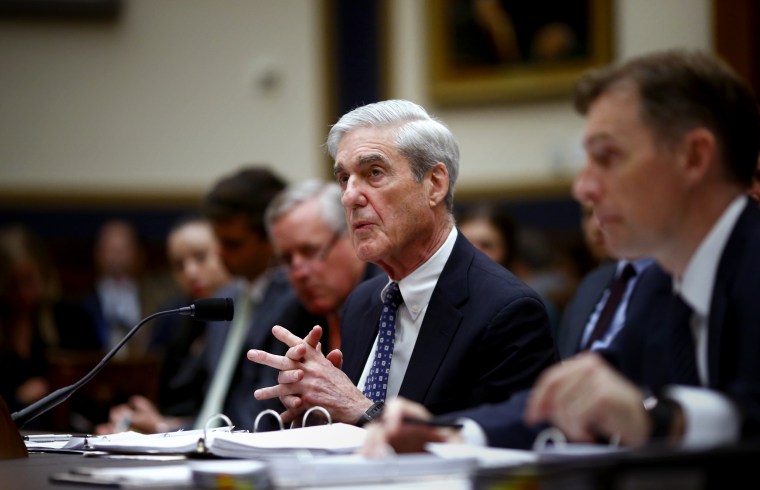WASHINGTON — The U.S. Supreme Court said Thursday it will decide whether House investigators can get access to grand jury material gathered by Robert Mueller's special counsel team.
The court agreed to hear the case during its new term that begins in the fall.
The court's action means the House Judiciary Committee will have to wait several more months before finding out whether it can see the material. House Democrats told the court that its investigations of President Donald Trump "did not cease with the conclusion of the impeachment trial" in February.
When Mueller's work ended in March 2019, the Justice Department sent a version of his final report to Congress but redacted, or blacked out, references to information that was gathered by the Mueller grand jury. The House Judiciary Committee asked a federal judge for an order directing the Justice Department to hand over an unredacted copy of the report along with some of the documents and interviews referred to by the blacked-out items.
The proceedings of a federal grand jury, including its findings and any materials generated during its investigations, are generally secret but there are some exceptions. Courts are allowed to authorize disclosure when they find the material would be used "preliminary to or in connection with a judicial proceeding."
The Justice Department said the exceptions to grand jury secrecy rules do not apply in this case.
"The ordinary meaning of 'judicial proceeding' is a proceeding before a court, not an impeachment trial before elected legislators," it said its filing.
But two lower courts ruled that the Judiciary Committee is covered by that exception, reasoning that a House impeachment is preliminary to a Senate trial, which is a judicial proceeding. A federal appeals court in March ordered the government to hand the materials over by May 11, but the Supreme Court put a hold on that ruling while it decided whether to take up the case.
The House noted that the Constitution says the Senate has the sole power to "try" all impeachments, requires the chief justice to preside, and refers to a "judgment" in cases of impeachment. House lawyers note that even one of Trump's lawyers, Kenneth Starr, said during his Senate trial that "we are not a legislative chamber ... we are in court."
The Judiciary Committee also said the grand jury material remains central to its continuing investigation of the president, and if it reveals new evidence of possible impeachable offenses the committee might recommend new articles of impeachment. But in an election year, with Congress hampered by the pandemic, the possibility of new impeachment proceedings seems at best remote.
For that reason, the Supreme Court's decision in the current case is likely to guide impeachment proceedings against future presidents.

